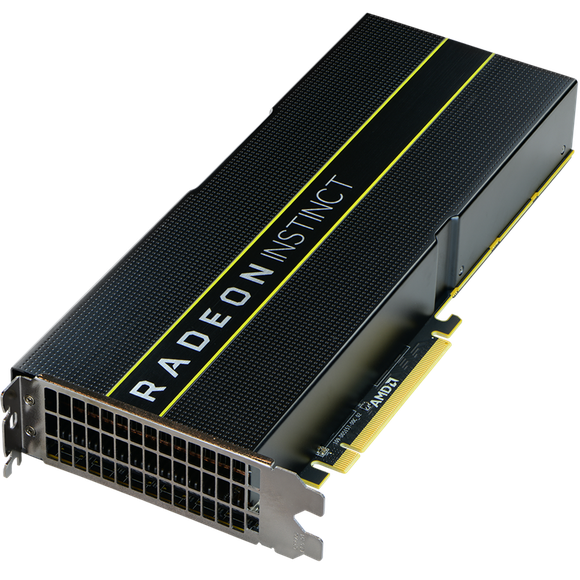Don't Waste Your Money on Bitcoin, These 3 Stocks Are Better Buys
Those investing in cryptocurrencies like bitcoin recently got a refresher course in Newton's third law of motion: "For every action, there is an equal and opposite reaction" -- or put more simply: "What goes up, must come down." Between December and early February, bitcoin lost more than half of its value.
There are an abundance of ways to benefit from the rise of digital currency without potentially going bankrupt. With that in mind, we asked three Motley Fool investors to choose companies they believed provided a more traditional alternative to the Bitcoin phenomenon. They offered convincing arguments for Advanced Micro Devices, Inc. (NASDAQ: AMD), PayPal Holdings, Inc. (NASDAQ: PYPL), and Alphabet Inc. (NASDAQ: GOOGL) (NASDAQ: GOOG).

Image source: Getty Images.
An underappreciated chipmaker
Leo Sun (AMD): Instead of buying bitcoin, consider buying shares of AMD, which produces some of the most popular GPUs for cryptocurrency mining. Cryptocurrency miners only account for a small portion of AMD's total GPU sales, but the rest of the chipmaker's business is in solid shape.
AMD's stock fell 10% over the past 12 months as its rivals Intel (NASDAQ: INTC) and NVIDIA (NASDAQ: NVDA) rallied about 25% and 130%, respectively. AMD's decline was surprising, since it soundly beat analyst estimates on the top and bottom lines over the past three quarters.
AMD landed some solid blows against Intel and NVIDIA in 2017. Its Ryzen CPUs offered comparable performance as Intel's Kaby Lake CPUs at much lower prices. Its Vega GPUs helped it keep pace with NVIDIA's current-gen Pascal GPUs, and its new APUs (which combine a CPU with a GPU) appealed to mid-range gamers who want to simultaneously upgrade both chips. AMD's sales of custom APUs for the PS4 and Xbox One also remain strong.

Image source: AMD.
Analysts expect AMD's revenue to rise 18% this year, as its non-GAAP earnings jump 129% and mark its second straight year of profitability. The stock also doesn't look expensive at 22 times forward earnings.
However, investors seem reluctant to buy AMD because they're unsure if it can counter NVIDIA's next-gen Volta GPUs and Intel's upcoming Coffee Lake CPUs. That's a valid concern, but AMD will launch new versions of the Ryzen and Vega later this year to counter those threats.
Digital payments of another sort
Chris Neiger (PayPal): PayPal may not have quite the same allure as bitcoin, but it'd be unwise to overlook this digital payment leader. We all know PayPal as the convenient way to buy things online, but the company is also creating a lot of new opportunities in the mobile peer-to-peer (P2P) market with its Venmo app.
Payments made through Venmo totaled $10.4 billion in the fourth quarter, an increase of 86% year over year, and they accounted for about 20% of PayPal's total payment volume (TPV) in the fourth quarter. The mobile P2P market will be worth an estimated $244 billion by 2021, and PayPal's early moves in this segment are setting the company up to benefit even further. Not only are users sending a lot of money to each other through Venmo, but more than two million U.S. merchants are now using Venmo as a mobile payment option for their businesses. PayPal has been slowing introducing new ways to monetize Venmo, which means the company has an entirely new revenue opportunity on its hands.
PayPal's business overall is humming along as well. The company added an additional 8.7 million active customer accounts in the fourth quarter, an increase of 61% from a year ago, and ended 2017 with 227 million active accounts. Those new additions helped PayPal increase its sales in the fourth quarter to $3.74 billion, a jump of 26% year over year. The company also saw its TPV increase by 32%, to $131 billion, and earnings per share of $0.55 surpassed Wall Street's consensus estimate of $0.52 in the fourth quarter.

Image source: PayPal.
Investors got a little spooked when PayPal announced that its former owner, eBay, is moving away from PayPal as its primary payment provider over the next few years. But that won't happen fully until 2023, and sales from eBay were already making up a smaller percentage of payments on the company's platform anyway. Additionally, the move will allow PayPal to court other businesses in ways that it was restricted from doing so under its former eBay agreement.
With its growing digital payments empire -- and new opportunities from peer-to-peer payments -- investors should forgo the volatility of bitcoin and look instead to PayPal's bright future.
More than just blockchain
Danny Vena (Alphabet): Blockchain is the underlying technology that made bitcoin so revolutionary. This digital and distributed ledger that records cryptocurrency transactions made by bitcoin and others represents one of the greatest opportunities to transform existing businesses.
Those looking to leverage that opportunity without gambling on the digital currencies themselves should consider internet search giant Google, a division of Alphabet.
By way of its venture capital arm Google Ventures, the company is among the top backers of the technology, investing in six blockchain-focused start-ups over the last five years, according to CB Insights. Among them are cryptocurrency trading platform LedgerX, blockchain-protected cloud storage service Storj, and business-to-business payments platform Veem.
The company provides investors with much more than just access to blockchain. Google was one of the pioneers in artificial intelligence, and it's among the leading companies in the world in the AI technique of deep learning. Those AI capabilities have been infused across the breadth of the company's features, providing more relevant responses in search, Translate, and Smart Reply.

Image source: Waymo.
Alphabet also has what is widely considered to be the most advanced self-driving system in Waymo. The segment has recently completed consumer testing and is preparing for the roll out of its ride-hailing service in Phoenix, Arizona.
The company has seven products that boast more than 1 billion users each -- YouTube, search, Maps, Chrome, Android, Google Play, and Gmail. The benefit of all those eyeballs is where Alphabet really shines -- its dominant advertising business -- which controlled over 42% of all digital ad spending for 2017, according to eMarketer.
Cloud computing is another fast-growing business segment, and the company recently revealed that Google Cloud is "already a $1 billion-per-quarter business." That and Alphabet's other businesses produced revenue of $32.3 billion in its most recent quarter, up 24% year over year, while operating income of $7.6 billion grew 15% over the prior-year quarter.
From blockchain to cloud computing, and from AI to self-driving cars, Alphabet offers investors a host of ways to invest in emerging technology, all without the risk of bitcoin.
More From The Motley Fool
Suzanne Frey, an executive at Alphabet, is a member of The Motley Fool's board of directors. Chris Neiger has no position in any of the stocks mentioned. Danny Vena owns shares of Alphabet (A shares) and PayPal Holdings. Leo Sun has no position in any of the stocks mentioned. The Motley Fool owns shares of and recommends Alphabet (A and C shares), Nvidia, and PayPal Holdings. The Motley Fool recommends Intel. The Motley Fool has a disclosure policy.

 Yahoo Finance
Yahoo Finance 